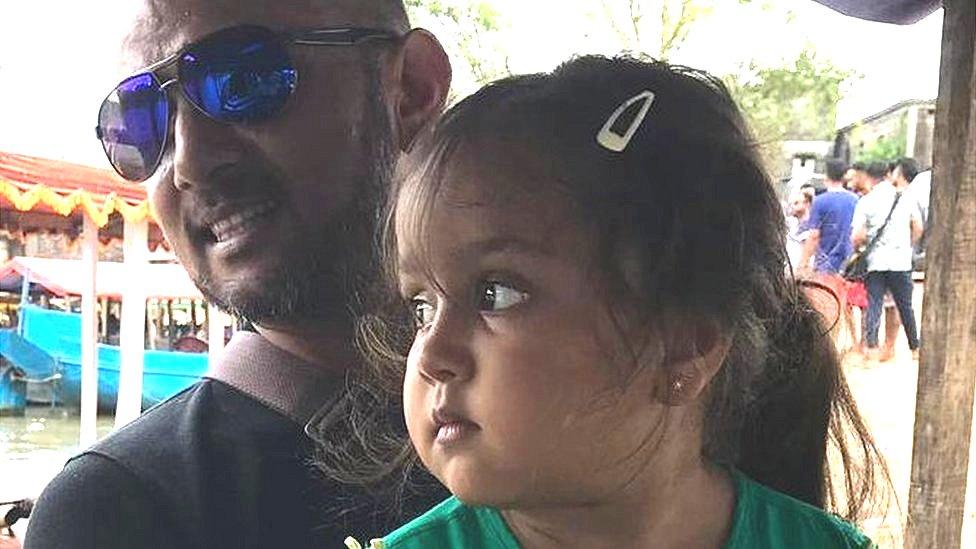Tafida Raqeeb: Brain-damaged girl can go abroad for treatment
- Published
Tafida's mother Shelina Begum said the case had been "exhausting and traumatic"
The parents of a brain-damaged girl will be allowed to take her abroad to continue her treatment, the High Court has ruled.
Five-year-old Tafida Raqeeb has been on life support at the Royal London Hospital since suffering a traumatic brain injury in February.
Her parents have organised funding to take her to the Gaslini children's hospital in Genoa, Italy.
But UK specialists had argued any further treatment would be futile.
Bosses at Barts Health NHS Trust, which runs the hospital in Whitechapel, had asked the judge to rule that ending Tafida's life-support was in her best interests.
Her mother, solicitor Shelina Begum, and father, construction consultant Mohammed Raqeeb, said doctors in Italy would continue to treat their daughter until she was diagnosed as brain dead.
They argued that Tafida was from a Muslim family and Islamic law said only God could take the decision to end her life.
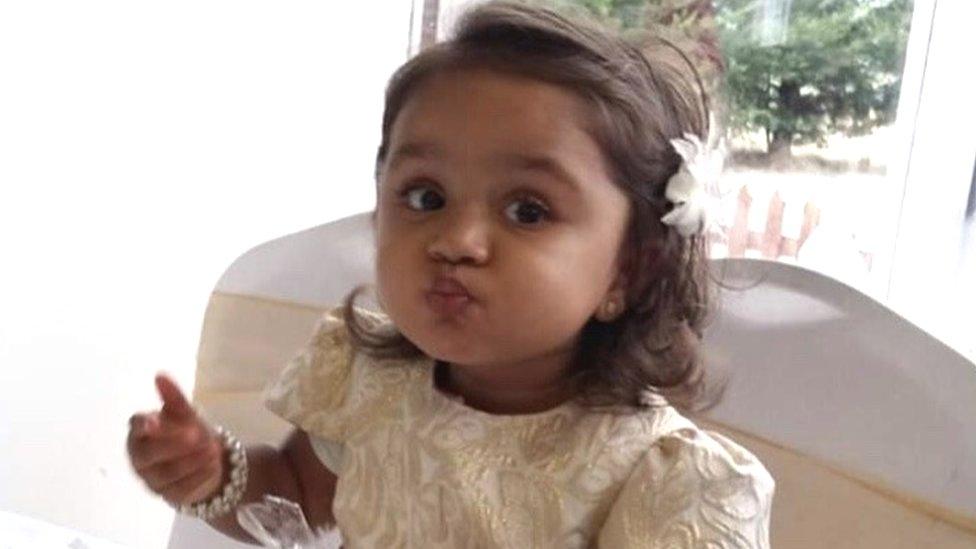
Tafida Raqeeb suffered a traumatic brain injury in February and has been on life support ever since
Following the ruling, Mr Raqeeb said the couple were "thrilled by the judgement".
Their barrister David Lock QC said the ruling was an "enormous relief" for the couple who he said now "wanted to get on with the transfer".
Lawyers representing Barts Health NHS Trust said hospital bosses would consider appealing against the ruling.
Barrister Katie Gollop QC told Mr Justice MacDonald that his ruling could have implications for other children.
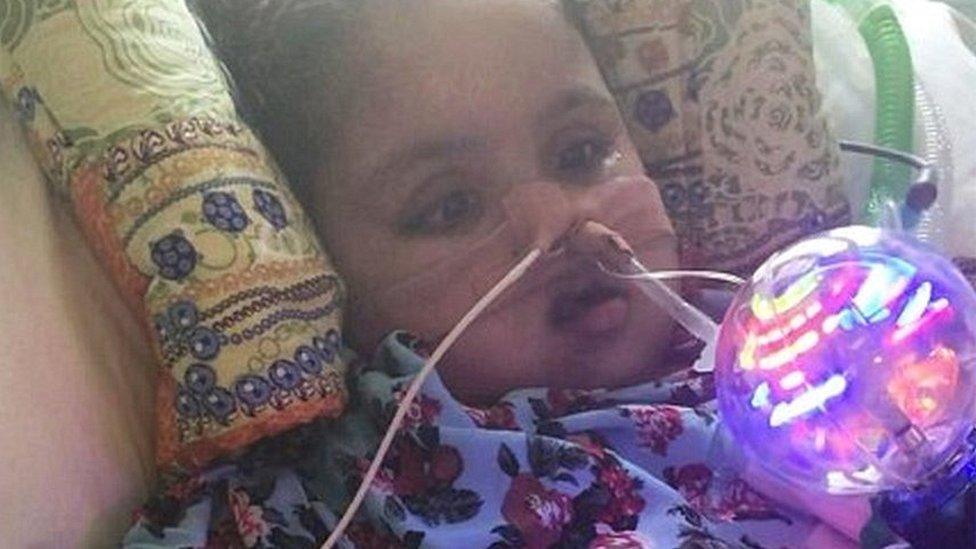
Specialists at the Royal London Hospital believe the five-year-old has no chance of recovery
The High Court had heard that Tafida woke her parents one morning in February complaining that she had a headache, and then had collapsed.
She was taken to hospital where doctors discovered that blood vessels in her brain were tangled and had ruptured.
In his ruling, Mr Justice MacDonald found that "where a child is not in pain and is not aware of his or her parlous situation, these cases can place the objective best interests test under some stress".
"Tests must be looked for in subjective or highly value laden ethical, moral or religious factors... which mean different things to different people in a diverse, multicultural, multi-faith society," he said.
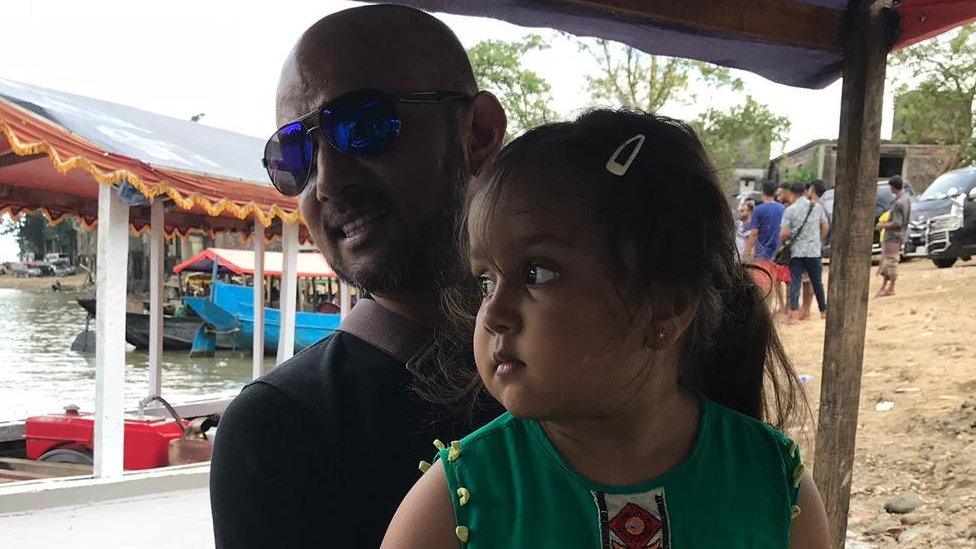
Tafida and her father Mohammed Raqeeb
Lawyer Mathieu Culverhouse, who represented Tafida, said there were "no winners in a case like this" but added the family were "relieved they are now a step closer to taking Tafida to Italy".
According to the family solicitor Paul Conrathe, they hoped to do that "within the next 10 days" - although it could be delayed if the trust appeal.
"That is a huge anxiety for the parents", he said.
- Published13 September 2019
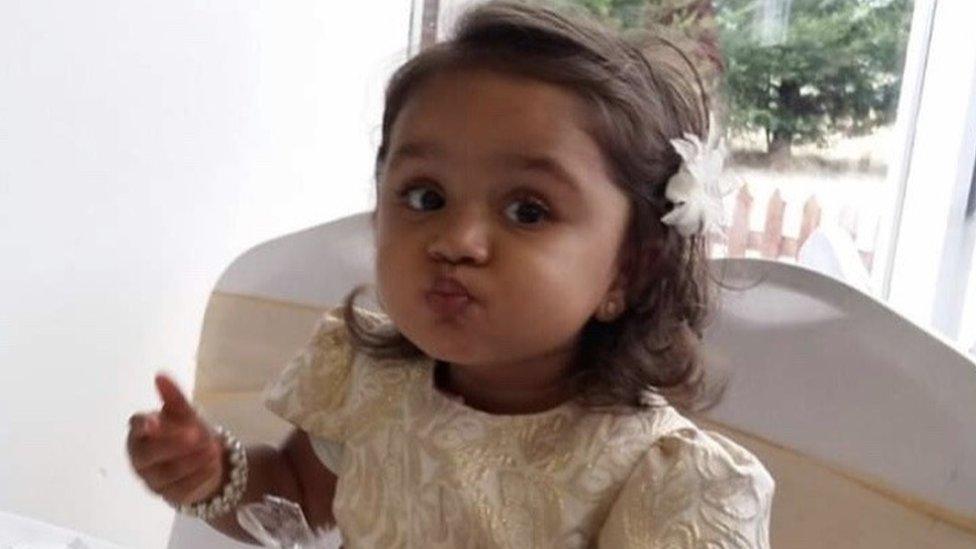
- Published12 September 2019

- Published10 September 2019

- Published9 September 2019

- Published3 October 2019
